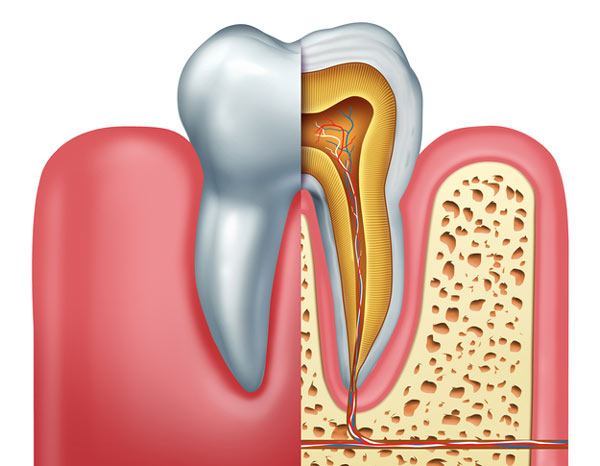Root Canal
Medford, OR
 A root canal is a sort of advanced dental treatment in which damaged tissues out from the tooth's center are removed. The pulp is a layer located underneath the hard enamel and dentin layers. The pulp is made up of blood vessels, tissues, and nerves. Whereas if the pulp becomes infected or wounded, the tooth may live without the pulp. Our skilled professionals at Cascade Dental can provide you with a root canal to guarantee that you constantly obtain the brightest smile that you have always desired. A root canal is a sort of advanced dental treatment in which damaged tissues out from the tooth's center are removed. The pulp is a layer located underneath the hard enamel and dentin layers. The pulp is made up of blood vessels, tissues, and nerves. Whereas if the pulp becomes infected or wounded, the tooth may live without the pulp. Our skilled professionals at Cascade Dental can provide you with a root canal to guarantee that you constantly obtain the brightest smile that you have always desired.
Why Do You Need a Root Canal?
When a tooth is damaged and creates a cavity, bacteria may penetrate the pulp. If this tooth is not treated, decaying particles and bacteria may cause infection, which can lead to pulp death, reduced bone, and loss of teeth. Some of the symptoms include inflammation around the neck and face, a cavity in the tooth, temperature sensitivity, and toothache.
Root Canal Therapy
According to the American Association of Endodontists (AAE), a root canal normally requires two visits, although, for certain difficult-to-cure teeth, further treatment may be necessary. Dental x-rays are used to evaluate the extent of the damage, and a general anesthetic may be administered to ease discomfort. A dental dam, which looks like a sheet of rubber, is placed over the mouth to keep it clean and free of saliva. The deteriorated material is removed, and a hole is made in the mouth crown to enable direct access to the pulp chamber. The pulp is then extracted using little dental equipment. The infection in the root canal is cleaned out.
Root Canal Infection Removal
After decaying debris and diseased pulp are removed, the area is cleaned, and the root canals are washed and drained. The canals may be widened so that if filing is needed in the future, there would be enough space. Before any filing is done, the root canal must be clean, dry, and without infection. Once the illness has gone beyond the tooth's dental pulp and root canal, the pulp cavity, and a root canal may be treated, and prescriptions may be administered. A temporary filling may be used to keep saliva and debris out of the dental crown, and it's better to avoid biting or chewing on until it's treated and fixed.
Root Canal Filling
Once the cavity is dry and clean, the filling procedure begins; if the temporary filling was used, it is eliminated so that the interior of the tooth may be accessible. Sealer glues and rubber products are applied to the tooth, followed by a dental filling, to protect the canals from saliva.
The Root Canal Operation is Now Finished
The tooth must be protected from future injury and allowed to function properly. This is performed by affixing a crown, which is an artificial tooth made of gold, porcelain, or porcelain- fused-to-metal. The porcelain-fused-to-metal is tinted to match the color of the teeth.
What Happens After a Root Canal
The teeth should operate regularly and look good with the new dental restoration. If you practice good dental care, the tooth should last a lifetime. The tooth may be sensitive for a few days after root canal treatment; over-the-counter medication may be helpful.
Make an appointment with our qualified medical team at Cascade Dental. Here, you will get high-quality care to guarantee that you may find happiness with a dazzling smile. To schedule an appointment or learn more about root canals, please contact us at 541-779-6401. |